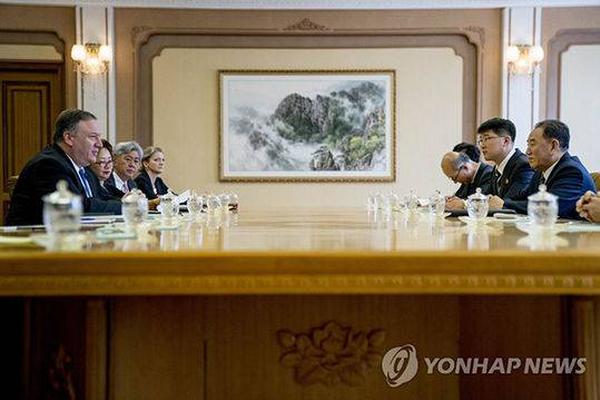【Glori-Anne Gilbert Archives】
United Nations Secretary General Ban Ki-moon is Glori-Anne Gilbert Archiveson a diplomatic mission to ensure that the Paris Agreement on Climate Change goes into force before he leaves office at the end of the year. With 31 countries formally ratifying the agreement on Wednesday, that goal took a major step toward becoming reality.
When the agreement was negotiated in France in December, many countries and environmental groups assumed that it would enter into force in 2020. Most international treaties take years, sometimes decades or more, to formally take effect as each nation goes through its own domestic process of ratifying or otherwise formally joining the pact.
However, with the impacts of global warming becoming more apparent and the specter of a Donald Trump presidency looming in the U.S., Ban has dramatically accelerated the timetable for action.
You May Also Like
SEE ALSO: 375 top scientists warn against Trump's plan to pull out of climate pact
The Paris Agreement would, for the first time, commit all countries, from tiny Fiji to major powers like China and the U.S. -- the world's largest greenhouse gas emitters -- to cut emissions and take measures to adapt to climate change impacts.
The Paris Agreement sets a goal of limiting global warming to "well below" 2 degrees Celsius, or 3.6 degrees Fahrenheit, above preindustrial levels by 2100. It also contains an aspirational goal of limiting warming to at or below 1.5 degrees Celsius, or 2.7 degrees Fahrenheit.
China and the U.S. both formally joined the agreement earlier this month.
60 countries have now joined #ParisAgreement representing 47.5%of emissions UNSG Ban Ki-moon announces to cheers from #UNGA hall pic.twitter.com/6Fa5Qp4IBV
— United Nations (@UN) September 21, 2016
Previous agreements had placed larger burdens on industrialized nations compared to developing countries, leading to a diplomatic stalemate.
At a special event held during the U.N. General Assembly in New York on Wednesday, leaders representing 31 different countries formally submitted documents legally binding them to the agreement's provisions.
A total of 60 countries have now officially joined on to the agreement, together representing 47.62 percent of global emissions.
The agreement will go into effect as soon as at least 55 countries representing at least 55 percent of global emissions have ratified or otherwise legally joined the agreement.
Major emitters such as India, Russia and the European Union have not yet ratified the treaty.
 Original image has been replaced. Credit: Mashable
Original image has been replaced. Credit: Mashable This means that one of those two thresholds has now been exceeded, years earlier than expected. In fact, the speed with which the agreement is going from initial adoption to potentially entering into force may set a new record for any U.N. treaty in history. Many treaties take years, sometimes decades, to go into force following initial negotiations. And others never go into force at all.
“What once seemed impossible is now inevitable," Ban said. "I am confident that by the time I leave office, the Paris agreement will have entered into force."
“With 31 more countries joining, it is abundantly clear that support for the Paris Agreement is unwavering. The global community is rallying behind swift and ambitious action to combat climate change," said Paula Caballero, global director of the climate program at the World Resources Institute, a nonprofit environmental think tank in Washington.
Via Giphy"The fact that [the] Paris Agreement will likely enter into force this year took everyone by surprise. This rapid pace reflects a spirit of cooperation rarely seen on a global scale," Caballero said in a statement.
It is not 100 percent assured that this agreement will in fact go into force this year, however. The European Union has scheduled a vote for early October to approve the agreement over the objections of some states, such as Poland, which rely heavily on coal-fired power plants that are significant emitters of greenhouse gas emissions.
“What once seemed impossible is now inevitable"
However, the E.U. signaled on Wednesday that it will approve the agreement, as has the U.K., whose approval was also uncertain in the wake of the "Brexit" vote on June 23 to leave the Union.
If the agreement goes into force this year, it's possible that a Trump administration could limit U.S. participation or try to nullify the agreement and renegotiate it in some way, as the candidate has said he would do.
Many climate scientists view these temperature goals as increasingly unrealistic, considering that 2016 is on track to have a global average temperature anomaly of at least 1 degree Celsius, or 1.8 degrees Fahrenheit, above the 20th century average.
On Tuesday, 375 prominent scientists -- including theoretical physicist Stephen Hawking -- signed a letter warning against withdrawing from the Paris Agreement, making reference to Trump's desire to pull out of the agreement if elected.
"... It is of great concern that the Republican nominee for President has advocated U.S. withdrawal from the Paris Accord," the letter stated.





Related Articles